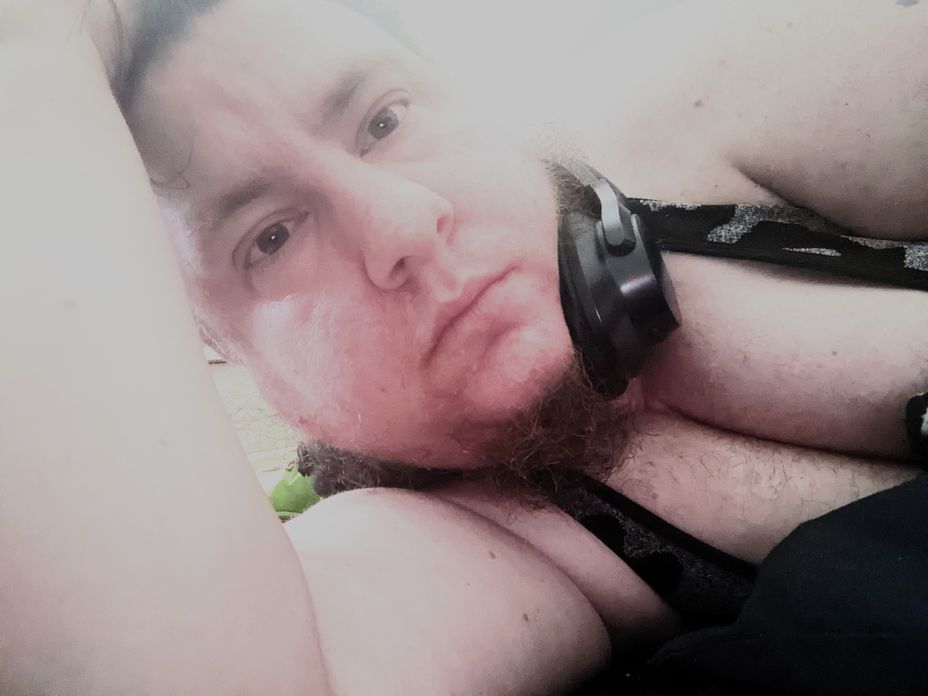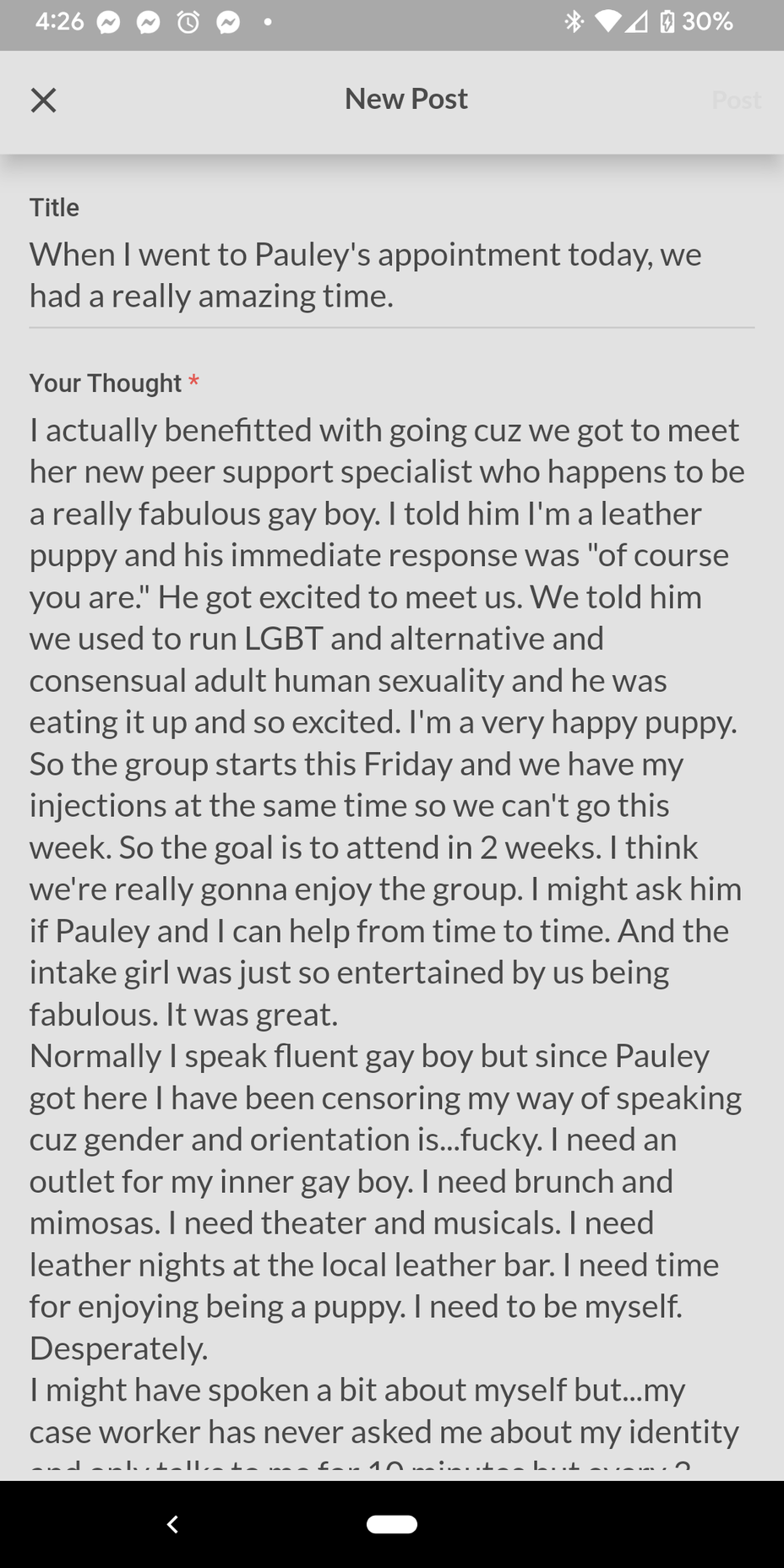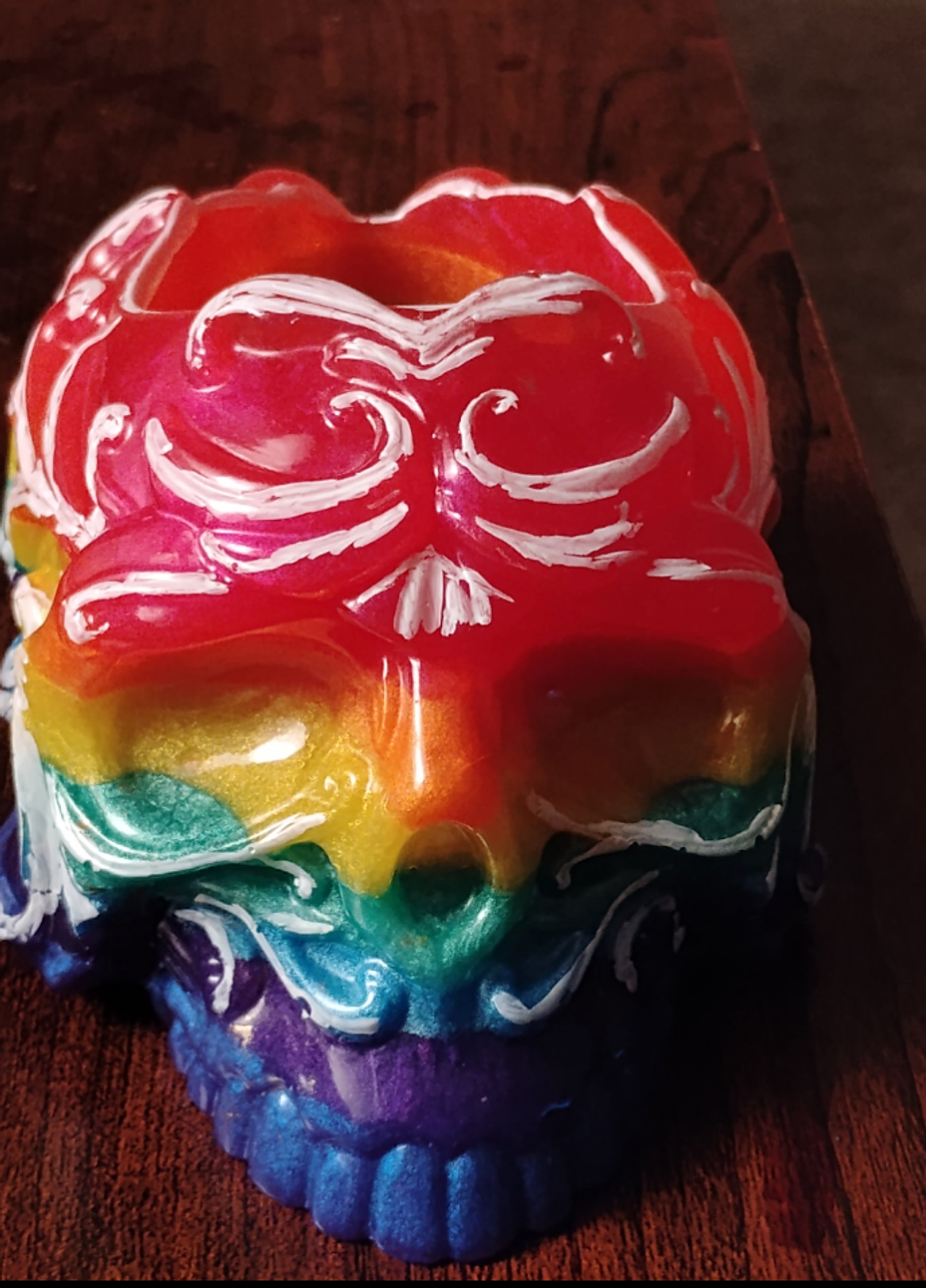.
.
.
.
.
.
.
.
.
.
Christmas/Xmas is my favorite holiday of the year. I love the decorations, the food, and just the feeling of being cozy to those I appreciate being in my life. Despite this, I believe that last year’s Christmas was the best for me because I wasn’t with my mom or sister; I was with my dad and my partners (yes, more than one partner and we’re all consenting), and some friends that came over, and I finally got what I truly wanted deep inside: love and appreciation.
However, I don’t believe in the whole “oh, where’s your holiday spirit??” bullcrap. What spirit? It’s not spirit for the holidays, I just feel happy about taking a part of it because I genuinely enjoy it, not to take part in some annual fad that just so happens to fit me in a way.
I get it. The holidays can be really fucking tough for others out there for different reasons, including trauma, family, anxiety, money, or just feeling like you must “fit in” emotionally. But here’s the thing: you can’t just expect others to be all happy and cheery all the time, even on holidays. That’s not how individuals work. One individual’s experience for a holiday won’t and will never be the same for every single individual here. I also find it highly ridiculous and even offensive to call someone a “grinch” just because they’re not up for the holidays.
And honestly, as an American minority, “where’s your holiday spirit?” and “grinch” feel like jabs, especially when it comes to how the recent years have been. Do you have any idea how much the world is being shit right now, especially when this fucking loser of a president has been here again? Do you have any idea how much hate and discrimination towards minorities has been happening more recently? If you find my last posts, you’ll know how incredibly angry I am. And you can’t expect me to just forget about it or that everything will be solved just because of some holiday commercial.
Not to mention the fact that not everyone is religious or believes in Jesus Christ. Well, I use “Christmas” even though I’m not religious and so do many other individuals, but that can definitely be alienating, too, when that’s enforced, and no, I’m not gonna stay quiet about it as individuals must accept that fact eventually.
In all honesty, there are holidays I hate as an American that may not be the same for others, and that’s fine. For example, I hate New Years. Why New Years, you may ask? Sadly, it’s been proved time and time again that so many fucking problems still happens in the first month. Maybe it’s some political bullshit that reminds me of how cruel this world can be to minorities like me, maybe it’s forest fires. I feel like there’s always something shitty that happens in January, and I fucking hate it. I feel like I’d be forcing fake positivity if I look forward to a new year at this point.
In all honesty, I’m starting to hate Valentine’s Day, too. I know what you’re thinking “but you have multiple partners, right?” Well, yes, and I love them to death, but still, this day was made to exclude individuals. What do I mean? Well, too many commercials, posters, or whatever media like to focus on monogamous romantic relationships a bit too much it drives me crazy. I mean I get it, it’s to make money, but again, not everyone is in or wants a romantic relationship, and not everyone is monogamous (like I). Also, we’re actually not in a romantic relationship, but we’re for each other in a more than friends way. That exists. That is real. I am on the aromantic spectrum, so I don’t really feel romantic attraction towards others anyway. And not everyone experiences “love” of any kind, whether romantic, platonic, familial, whatever, leaving those folks/folx alienated even further. Love isn’t what makes someone an individual; being an individual is what makes someone an individual. This day would have been better off focusing on just being kind to yourselves instead.
Back to what I was saying, there are many reasons why someone may not be so up for the holidays or for any other holiday, and that’s fine. I find it bullshit to make others force feelings that they do not have, that’s not how it works. They may love/like Christmas/Xmas like I do, but not even I find any reason to be so unnecessarily expecting. So, it’s okay to not like or to not be happy for the holidays. In whatever situation you’re in, I wish you the entire best, and please know that you are incredibly worthy and that there are those who understand, like me, even at times when you don’t feel so. Please take any time for yourselves, and know that it’s absolutely okay to set or want to set boundaries. You are important, too.
(Please refrain from calling me human (I have dysphoria, I’d rather not go into detail right now), please and thank you!)
#MyAutismIsNotADisorder #MyAutismIsNotADisability #AutismSpectrum #Autistic #Anxiety #GeneralizedAnxietyDisorder #OSTD #OtherSpecifiedTraumaDisorder #neurodivergent #Neurodivergency #Vent #triggerwarning #LGBTQIA #MentalHealth #Holidays #WarmWishes




